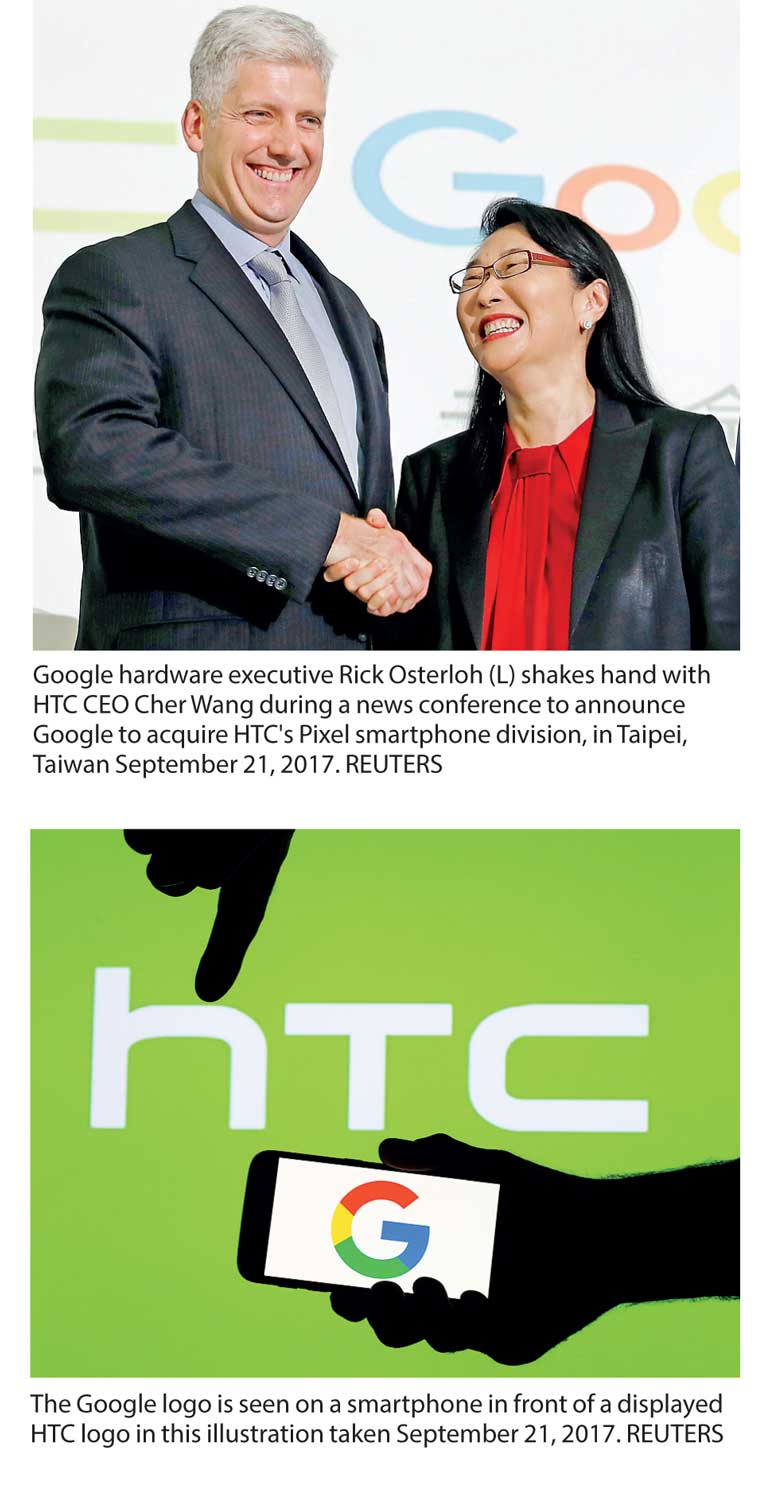Wednesday Feb 18, 2026
Wednesday Feb 18, 2026
Friday, 22 September 2017 00:00 - - {{hitsCtrl.values.hits}}
 Taipei/San Francisco (Reuters): Alphabet Inc’s Google said it would pay $1.1 billion for the division at Taiwan’s HTC Corp that develops the U.S. firm’s Pixel smartphones – its second major foray into phone hardware after an earlier costly failure.
Taipei/San Francisco (Reuters): Alphabet Inc’s Google said it would pay $1.1 billion for the division at Taiwan’s HTC Corp that develops the U.S. firm’s Pixel smartphones – its second major foray into phone hardware after an earlier costly failure.
The all-cash deal will see Google gain 2,000 HTC employees, roughly equivalent to one fifth of the Taiwanese firm’s total workforce. It will also acquire a non-exclusive license for HTC’s intellectual property and the two firms agreed to look at other areas of collaboration in the future.
While Google is not acquiring any manufacturing assets, the transaction underscores a ramping up of its ambitions for Android smartphones at a time when consumer and media attention is largely focused on rival Apple Inc.
“Google has found it necessary to have its own hardware team to help bring innovations to Android devices, making them competitive versus the iPhone series,” said Mia Huang, analyst at research firm TrendForce.
The move is part of a broader and still nascent push into hardware that saw Google hire Rick Osterloh, a former Motorola executive, to run its hardware division last year. It also comes ahead of new product launches on Oct. 4 that are expected to include two Pixel phones and a Chromebook.
Pixel smartphones, only launched a year ago, have less than 1% market share globally with an estimated 2.8 million shipments, according to research firm IDC.
Google will be aiming not to repeat mistakes made when it purchased Motorola Mobility for $12.5 billion in 2012. It sold it off to China’s Lenovo Group Ltd for less than $3 billion two years later after Motorola failed to produce appealing products that could compete with iPhones. This time around, however, the deal price tag is much smaller and the lack of manufacturing facilities also minimises risk.
Google’s strategy of licensing Android for free and profiting from embedded services such as search and maps has made Android the dominant mobile operating system with some 89% of the global market, according to IDC.
But it has long been frustrated by the emergence of many variations of Android and the inconsistent experience that has produced. Pushing its own hardware will likely complicate its relationship with Android licensees, analysts said.
For HTC, the deal will allow it to concentrate more on its virtual reality headsets while also reducing development costs. “This will be a sizeable reduction in our R&D expenses. Overall it should be in the ballpark of a 30-40% reduction in operating expenses,” HTC Chief Financial Officer Peter Shen told a news conference in Taipei.
The Taiwanese firm will continue to run its remaining smartphone business but the sharp downsizing of its mainstay operations has cast some doubt over its longer term future.
“HTC can design and produce innovative products but it lacks the deep pockets of the likes of Samsung for marketing promotions and saturation advertising,” said Jake Saunders, an analyst at ABI Research in Singapore.
“Competitors in the form of Huawei, Oppo, Xiaomi and ZTE are snapping at HTC’s heels.”HTC’s worldwide smartphone market share declined to 0.9% last year from a peak of 8.8% in 2011, according to IDC.